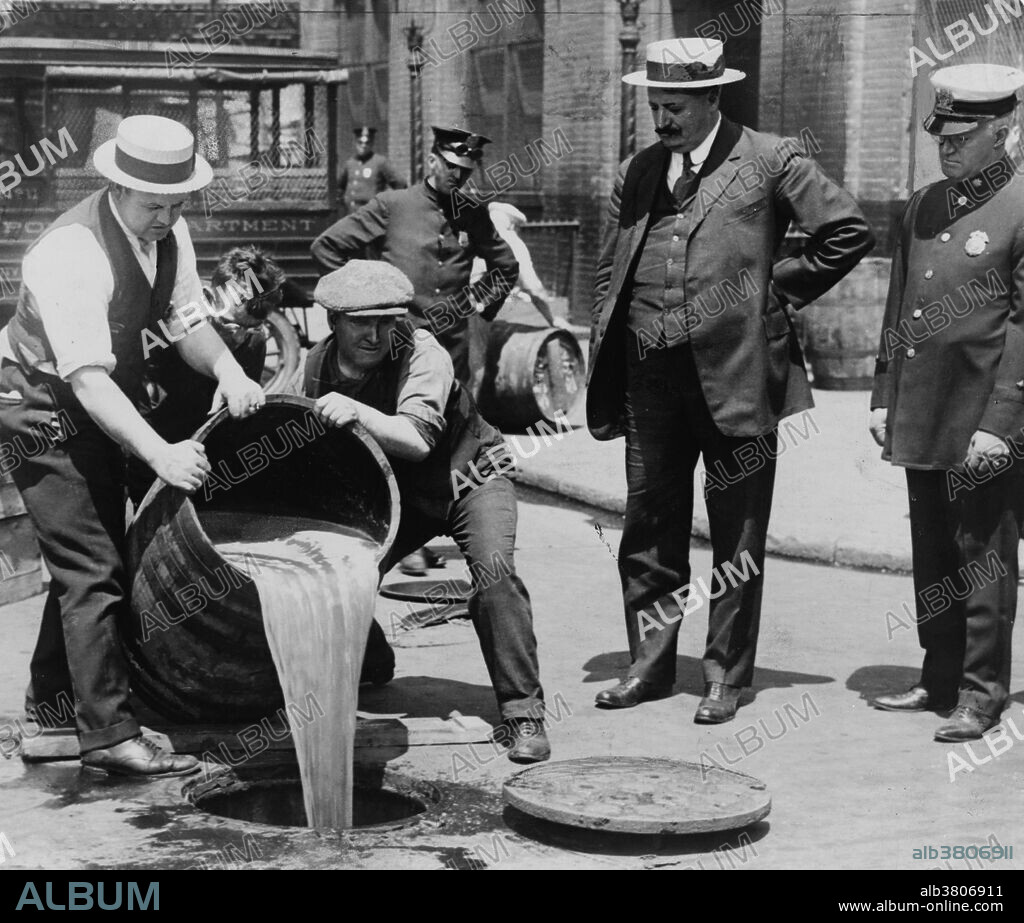alb3806911
NYC, Prohibition Agents Dump Liquor Into Sewer

|
Ajouter à une autre Lightbox |
|
Ajouter à une autre Lightbox |



Avez-vous déjà un compte? S'identifier
Vous n'avez pas de compte ? S'inscrire
Acheter cette image
Titre:
NYC, Prohibition Agents Dump Liquor Into Sewer
Légende:
Voir la traduction automatique
New York City Deputy Police Commissioner John A. Leach, right, watching agents pour liquor into sewer following a raid during the height of prohibition. Prohibition in the United States was a nationwide Constitutional ban on the sale, production, importation, and transportation of alcoholic beverages that remained in place from 1920 to 1933. It was promoted by dry crusaders movement, led by rural Protestants and social Progressives in the Democratic and Republican parties, and was coordinated by the Anti-Saloon League. Prohibition was mandated under the Eighteenth Amendment to the U.S. Constitution. Enabling legislation, known as the Volstead Act, set down the rules for enforcing the ban and defined the types of alcoholic beverages that were prohibited. Private ownership and consumption of alcohol was not made illegal under federal law; however, in many areas local laws were more strict, with some states banning possession outright. Prohibition supporters, called drys, presented it as a victory for public morals and health. Anti-prohibitionists, known as wets, criticized the alcohol ban as an intrusion of mainly rural Protestant ideals on a central aspect of urban, immigrant, and Catholic life. Nationwide Prohibition ended with the ratification of the Twenty-first Amendment, which repealed the Eighteenth Amendment, on December 5, 1933. Undated, no photographer credited.
Crédit:
Album / Science Source / New York Public Library
Autorisations:
Modèle: Non - Propriété: Non
Questions sur les droits?
Questions sur les droits?
Taille de l'image:
3900 x 3315 px | 37.0 MB
Taille d'impression:
33.0 x 28.1 cm | 13.0 x 11.1 in (300 dpi)
Mots clés:
ALCOOL • AMÉRICAIN • CANIVEAU • CANNIVEAU • CONFISCATION • HOMME • LIQUEUR • MANAGER • REQUISITION • SAISIE • TINETTE • TONNEAU • TONNEAUX • VIN TONNEAUX • XXE SIECLE
 Pinterest
Pinterest Twitter
Twitter Facebook
Facebook Copier le lien
Copier le lien Email
Email
